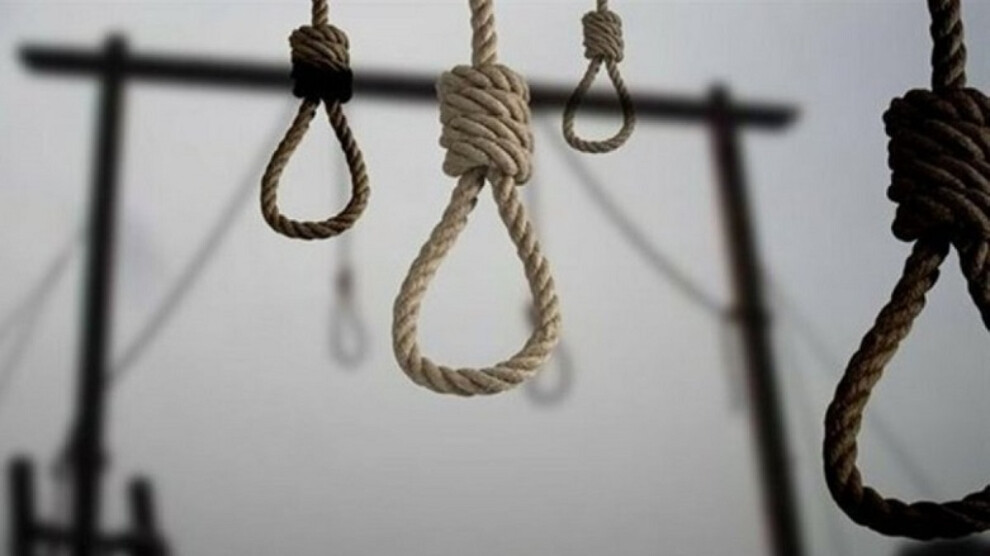Role of campaigns in abolition of retaliation punishment
Maryam Sahrai, sister of death-sentenced prisoner Bakhtiar Sahrai, said, “Society can help reduce disruptive behaviors by using new paths and approaches, of course by cooperation with people not by using force against them.”

DILAN MOHAMMADI
Mahabad - “Qisas” means that an individual, who commits a crime, should be punished in the same way as the crime committed. In Iran, people who have committed murder (intentional or unintentional) are sentenced to death as a Qisas. If the victim’s family consents and the victim’s ransom is paid, the individual is pardoned. However, Qisas and death penalties are still performed in the country. Rather than the Qisas system does not reduce crimes, it has continuously increased the number of murders and non-murder crimes. A fundamental solution to this matter has not been found yet. Some prisoners have been saved from being executed thanks to campaigns launched by individuals and NGOs. Perhaps such campaigns should be more widespread to end execution and Qisas in Iran so that we can reach an improved society.
Unintentional murder
Unintentional killings are not charged with Qisas since they have not been committed on purpose. But the killers should pay ransom to the victim’s family so that they are in prison for one or three years. In the Iranian judicial system, the punishment for unintentional killings such as car accidents, is different from other crimes. Based on Article 714 of the Islamic Penal Code of the Islamic Republic of Iran, whenever the carelessness, imprudence, or failure to comply with governmental regulations, or lack of driver skill (including all land, water, or air vehicles) or the or any motor vehicle operator commit an unintentional murder, he/she is sentenced to six months to three years and also paying bail if the guardians demand. Meanwhile, the number of Kurdish citizens who are sentenced to prison according to the Qisas is also high in Iran. The people living in Kurdistan regions still hold protests and demonstrations to struggle against the increasing executions in their regions.
Campaigns against Qisas
A campaign has been launched in different cities of Iran such as Sanandaj, Kermashan and some towns in Urmia province by families of death-sentenced prisoners demanding amnesty. Majority of people have opposed the executions in Kurdistan for a long time now. Human, women and environmental rights activists have held protests spontaneously in order to reduce execution rates. In such a society in which there is a high rate of socially disruptive behaviors, both the killed and the killer are victims and death penalties are not helpful but continue the cycle of violence. People or even salespersons try to get in touch with the victims’ families and gain their forgiveness. Families who have avenged the killers of their loved ones have felt guilt and suffered from depression after the execution. This experience becomes a nightmare for some families, therefore execution is never the answer. Sometimes, the executed person has been proved to be innocent after the execution. As a result, society should move towards modification and forming a path to reduce crime.
In 2013, an unintentional killing was committed by Bakhtiar Sahrai. He was sentenced to death after standing trial. Then, the case was referred to the 45th branch of Taalif Qulub headquarters of Kermashan province (murder specialists) by the order of the prosecutor and the demand of the victim’s family. During the hearing, people, including shop owners, teachers, local elders and influential people made the round-the-clock efforts and at the end, unconditional consent was obtained from the family on October 8, 2019.
NuJINHA interviewed Maryam Sahrai, sister of Bakhtiar Sahrai, on this matter.
Who helped you with fundraising to prevent your brother from getting executed?
Everyone helped as much as they could but mostly the people, including salespersons, tradespersons, and teachers, living in our region helped us.
Do you think execution and Qisas is really the answer to eradicate crimes?
Generally, execution does not have a good spiritual impact. It definitely has spiritual, mental, Individual and social effects so society must move towards eliminating executions.
What kind of actions must be taken to end executions?
We are very happy for my brother’s freedom. The atmosphere in the family changed completely and we were able to, of course with the help of people, overcome all the emotional pressure. Certainly, society can play an important role in reducing violations and disruptive behavior, of course by cooperation with people not by using force against them. Elders, religious people, university professors and experts should raise awareness of the public so that family members will not feel guilty and suffer from depression. Therefore, the hardest and most important part of the process is to make a conversation with the victim’s family.
